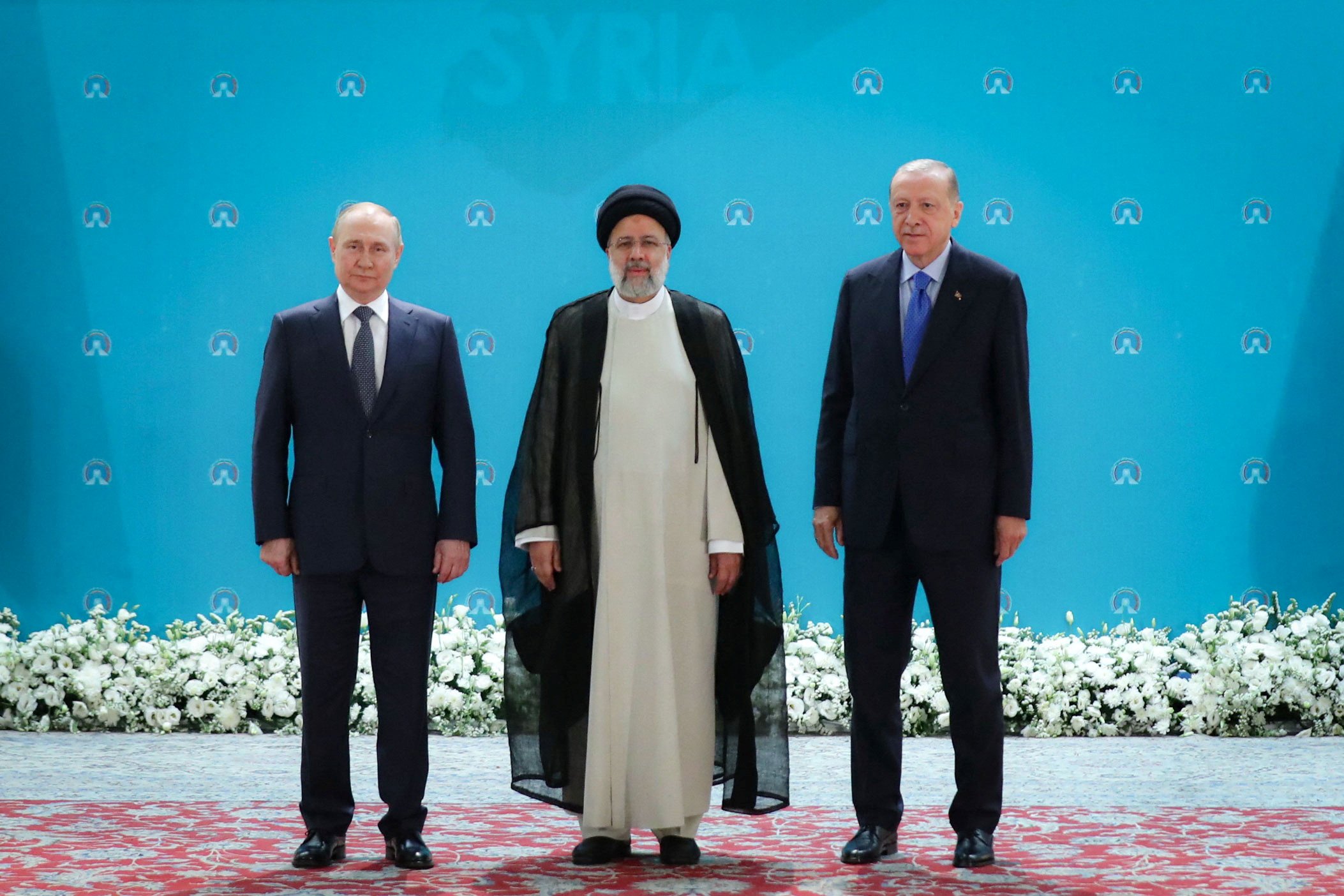
Russia's ongoing invasion of Ukraine has shaken the global order — not least for the always messy geopolitics of the Middle East.
From 2015, at the same time as it sought to downsize Ukraine, Russia had directly intervened in Syria’s internal war to salvage its old friends the Assads and to reassert itself as a great power.
Syria was, of course, peripheral in Russian President Vladimir Putin’s dreams to resurrect the Tsarist and Soviet empires and to make Russia a ‘‘third Rome’’, successor of Rome and Byzantium. The distinction of being the primary target belonged to Ukraine, a large new state that offered access for Western influences to seep eastward, at least in the view of the Russian leadership.
In Syria, Russia devastated civilian infrastructure and transformed the strategic landscape in the run-up to doing the same in Ukraine.
First, Russia’s military intervention shifted the geopolitical focus in the Middle East from the eastern Mediterranean coastal margins to new fissures across Syria and Iraq. Russia thereby played a prominent role in deflating Israeli-Palestinian and Lebanese affairs. Israel got limited relief on its Palestinian fronts, but the entrenchment of Iran and Hezbollah in Beirut was ominous.
Second, because Russia itself lacked the resources to re-fashion Syria as a stable strategic asset, President Putin tried to harness the Middle East’s non-Arab regional powers: Iran, Israel, and Turkey. Iran contributes the ground forces Russia needs for military consolidation, principally Lebanese and Iraqi Shia Muslim Arab militiamen loyal to Teheran, not to Moscow. Israel, with American backing, constrains both Iran and Russia, though treading carefully with the latter. Turkey has the relations with Sunni Muslim Arabs vital to any new Russian-promoted arrangements in the Middle East.
Each regional power, however, demonstrates Russia’s long-term vulnerability.
Iran can see opportunity in Russian concentration on Ukraine, looking to fill any space Russia vacates in Syria.
Israel has found common cause with the nervous smaller oil principalities of the Persian Gulf against Iran and Hezbollah. Many in the United Arab Emirates and Bahrain welcome Israeli blows to Iranian facilities in Syria, whether or not such Israeli activities happen to be convenient to Moscow.
Prestige
Turkey wants the prestige of being mediator between Russia and Ukraine and deploys its cards as a member of Nato and a player between the Kremlin and the White House. Turkey and Russia have been adversaries as much as allies in the new zone of fissures extending from the Caucasus to Turkish-dominated parts of northern Syria to Cyprus and Libya. Turkey has used its potent ground forces against President Putin’s Syrian regime clients while also selling military drones to Ukraine.
Otherwise, the Ukraine war rescued an Arab regional power — Saudi Arabia. Virtually a pariah because of its human rights record, this friend of the West got itself bogged in a nasty little war in Yemen, where the Iranian regime carved out a sphere of proxies on the Saudi doorstep.
Putin’s adventure in Ukraine and consequent Western boycotts of Russian oil and gas instantly transformed the Saudi situation. United States President Joe Biden changed, however briefly, from a fierce critic to a supplicant for Saudi favours in the oil market.
Can Russia sustain its new presence in the Middle East, primarily in Syria, while crushing Ukraine, reordering eastern Europe and outlasting Nato and the West?
Turkish-sponsored Russia-Ukraine deals to distribute grain from Ukrainian stocks to hungry countries, most immediately in the Middle East, indicate pragmatism. Large Arab states, above all Algeria and Egypt, will not forgive a great power that toys with their viability.
Middle East geostrategy is shifting in the backwash from the Ukraine crisis. As well as becoming entangled in its Ukraine disaster, Russia faces mountainous challenges in fulfilling its ambition to return to the Middle East.
Bill Harris is a Middle East specialist. His books on the region include Lebanon: A History, 600-2011 with Oxford University Press and Quicksilver War: Syria, Iraq and the Spiral of Conflict with Oxford and Hurst Publishers.









